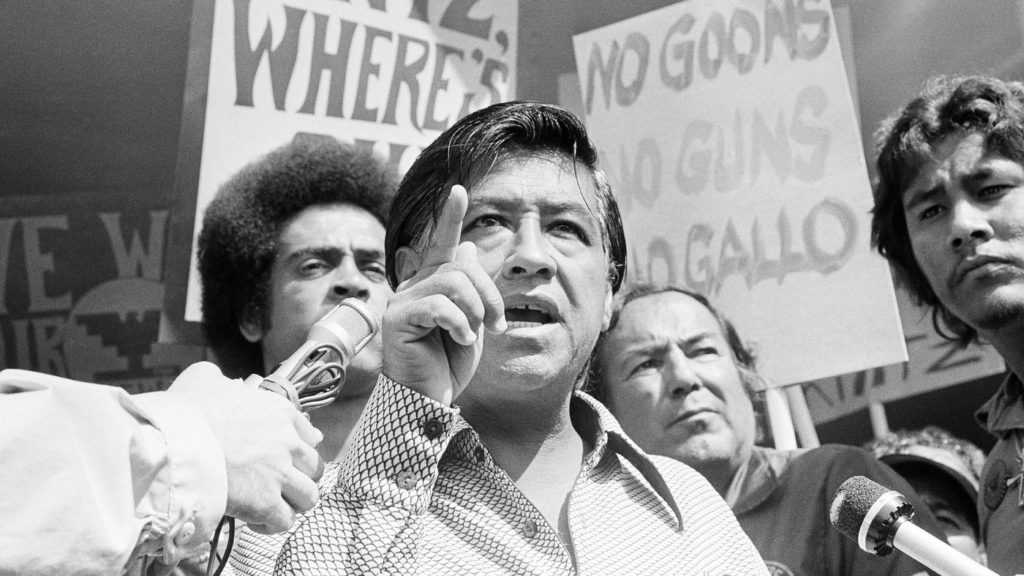Does Union Democracy Lead to a More Militant Unionism?

In the American labor movement, there’s something of a divide between leadership and the organizers. The Cult of Jane McAlevey has an answer to everything wrong with labor–more union democracy will lead to more militant unionism. This has become almost a mantra among organizers. I was teaching a course last January at the UMass-Amherst labor master’s program and I dared to suggest that maybe McAlevey was too simplistic and you could the students back gets real stiff. She’s just beyond criticism for a lot of organizers.
Now, McAlevey does have a point. More union democracy is generally better than less union democracy. There is union leadership that is staid and needs to go. But these things are really complicated in fact and historically, this analysis doesn’t hold up at all. First, much union democracy in our history has been around keeping jobs all white. The first thing many workers have wanted from their union is to keep the Blacks/Asians/immigrants/whoever out. So that has to be reckoned with. Second, many of the greatest successes in union history have come from completely autocratic institutions. The Mineworkers and Steelworkers were utterly top down organizations. John L. Lewis was a dictator’s dictator who would drive any challenge to him out of the union. He also created the CIO and organized millions of American workers. And let’s be clear–it’s not as if the communist-led unions believed in democracy if that got in the way of larger CP goals. If it did support those goals, sure. But we need to have clarity about our history here.
Well, Jacobin published an article pushing this McAlevey stuff and Dave Kamper, a long time organizer who I know a bit from the internet world and through mutual friends, finally felt the need to clap back a bit. To Jacobin’s credit, they allowed him a whole article to write a corrective that is just great stuff.
Chris Bohner’s recent essay in these pages, “Direct Elections for Labor Leaders Make for More Militant Unions,” lays out an argument that at one level is so uncontroversial that it should be a platitude — unions should be democratic. No one who believes in organized labor in the United States (or anywhere in the world) can disagree with the sentiment. Nevertheless, Bohner is right to say it, because even seemingly obvious truths bear repeating.
However, Bohner goes much further and commits an error common to union reformers — conflating the morally good with the inherently strategic. A “more democratic union,” Bohner contends, “is a more militant union.” The path to a stronger, better union is through democracy.
Would that it were so. Building more effective unions requires commitment, patience, planning, and considerable skill, and cannot be achieved by changing a constitution. We are doing a disservice to those who want to build a better labor movement if we reduce the scope and scale of our challenges to the question of how leaders are chosen.
Let me back up, though, and begin by questioning one of Bohner’s underlying assumptions, that “‘one member, one vote’ is a right denied to most union members.” This simply isn’t true.
It is true that if by one member, one vote, you only mean direct election of an international union’s top leaders, most unions are not structured that way. But that’s the only way that Bohner’s assertion is true.
For example, Bohner criticizes the delegates of the convention of the United Food and Commercial Workers (UFCW) for not backing what he calls “commonsense resolutions” to make it easier for the union to strike, increase strike pay, and direct resources to organizing. He asserts that if “the general membership of the UFCW had direct elections, these resolutions would have likely received widespread support.” This is because, as he puts it, union conventions that elect leaders by the delegate system “entrench incumbents who can deploy the union’s vast legal, financial, political, and organizational resources to maintain power and stifle reform challenges.”
But the general membership of the UFCW does have direct elections. The delegates of that convention were all directly elected by members in secret-ballot elections. The UFCW constitution lays out the process in excruciating detail, one that guarantees members the right to vote.
Why is a convention delegate elected by one-member-one-vote a shill for incumbents, but an international union president elected by one-member-one-vote a liberatory figure who will change the union in fundamental ways?
Bohner here falls prey to another common error made by union reformers — treating union decisions they don’t agree with as self-evident proof of some kind of corruption.
Unions are political entities. Reasonable people can disagree on what the best path forward is for a union. To stick with UFCW: it’s entirely possible that UFCW convention delegates might have sad memories of the 2003–04 California grocery strike, where some seventy thousand UFCW members were out for 140 days, the union’s assets were cut in half, and the final deal was a bitter pill that few believe justified the walkout. Remembering that experience might well make a delegate reluctant to increase strike pay because of the risk that a long strike would drain the union’s coffers.
I’m not saying those convention delegates were right; I’m not saying they were wrong. I’m saying that their decision can be explained without resorting to allegations of corruption.
And, yes, it is likely true that, if the current leadership of UFCW opposed the reformers’ suggested changes, they might have tried to persuade convention delegates. That’s called politics, not corruption. Leaders get to try to persuade people to support their policies. That’s what leaders are supposed to do.
The whole thing is this good. We need to be reading and listening to those with complex answers to complex questions.
If anyone says they have the answer for what is wrong with the labor movement, walk the other way. They are ideologues selling a line, even if they believe that line.


